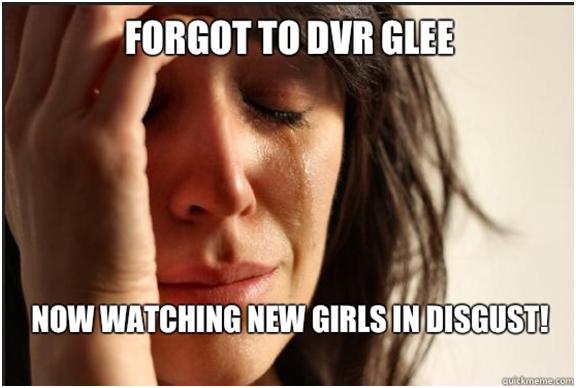Some recently released stats about the meteoric rise of DVRs say a lot about where television viewing is headed.
It turns out that more and more, consumers are watching TV shows when and where they want – not necessarily when they’re broadcast live. You know this if you own a TiVo or more likely have a DVR as part of your cable or satellite television subscription.
Once you get beyond sports and big shows like the Academy Awards, a growing percentage of television consumption is not happening in real time.
An example is Fox’s big show, Glee. According to the newest data, it is not rare for a majority of its audience to watch the show after its original Thursday night air date. Modern Family has gained as much as 30% of viewers when you add in DVR consumption.
So while DVRs allow consumers to watch more TV, we know the net effect of these devices is more commercial skipping. This season alone, CBS research shows that DVR usage has grown 6%. So while overall penetration of these gadgets has showed signs of slowing, use of them has actually increased.
What implications does this have for radio?
If you think about it, radio looks like it may end up being the last live broadcast medium. Not only is radio more personal – chances are you’re listening by yourself – but it also has that live, you-never-know-what’s-going-to-happen next feeling.
Aside from services like TuneIn and public radio podcasts, the vast majority of radio listeners are consuming radio LIVE – in real time.
This works for advertisers, too.
![]() But the real effect is that as every other medium becomes on-demand, radio’s live quality becomes more unique – and special. This is a difference that you can literally feel when you listen to live radio.
But the real effect is that as every other medium becomes on-demand, radio’s live quality becomes more unique – and special. This is a difference that you can literally feel when you listen to live radio.
Of course, this also presupposes that the radio you’re listening to hasn’t been pre-recorded or voicetracked. Because with few exceptions, it’s just not as good as live radio or it has that bland, rushed, canned sound. Only the best voicetrackers can really pull it off.
And given that being live may become one of those unintended consequences that makes broadcast radio different, wouldn’t that encourage more broadcasters to promote that advantage, while doing less voicetracking?
Radio is live.
- What To Do If Your Radio Station Goes Through A Midlife Crisis - April 25, 2025
- A 2020 Lesson?It Could All Be Gone In A Flash - April 24, 2025
- How AI Can Give Radio Personalities More…PERSONALITY - April 23, 2025





I watch the majority of my television via the DVR. However, if I see an interesting ad, I am likely to slow down the DVR and check it out. At the same time, just because I’m in the fast forward mode doesn’t mean I’m not aware of the sponsor, be it a auto, fast food, or especially at this time of the year, jewelry.
Advertisers who are conscious of this fact should make more of an effort to keep their logos on the screen as much as possible. DVRs and ad skipping are not going away any time soon.
Steve, I think many advertisers are onto what you’re talking about. And I’m sure many agree they do “stop down” during some breaks to actually watch a spot. But the logo reinforcement you speak of is part of the strategy, too. Radio has different issues as people may punch around when commercials come around, BUT most consumers are not able to fast-forward through commercial breaks. For radio, that has to be something of an advantage. Thanks for checking in.
The remarkable fact is that even with a DVR viewers watch 50% of the commercials. One wonders what that number is for the radio DVR DAR.fm? I’d contend it would be similar or higher commercial listenership because the audio listening experience is often in the background say when driving and listening in a car or even at work but the audio player is behind other windows.
It’s clear that TV/net is training consumers that media should adapt to their schedule and not the other way around.
Michael, DVRs for FM could be a boon for spoken word radio. I sometimes have that feeling when I’m listening to public radio or sports radio about wanting to go back 30 seconds to hear something I’ve missed – all because of the DVR phenomenon. For music stations, might it possibly lead to long(er) form programming again – likek countdowns and other specials that consumers might want to DVR? Thanks for adding to our conversation.